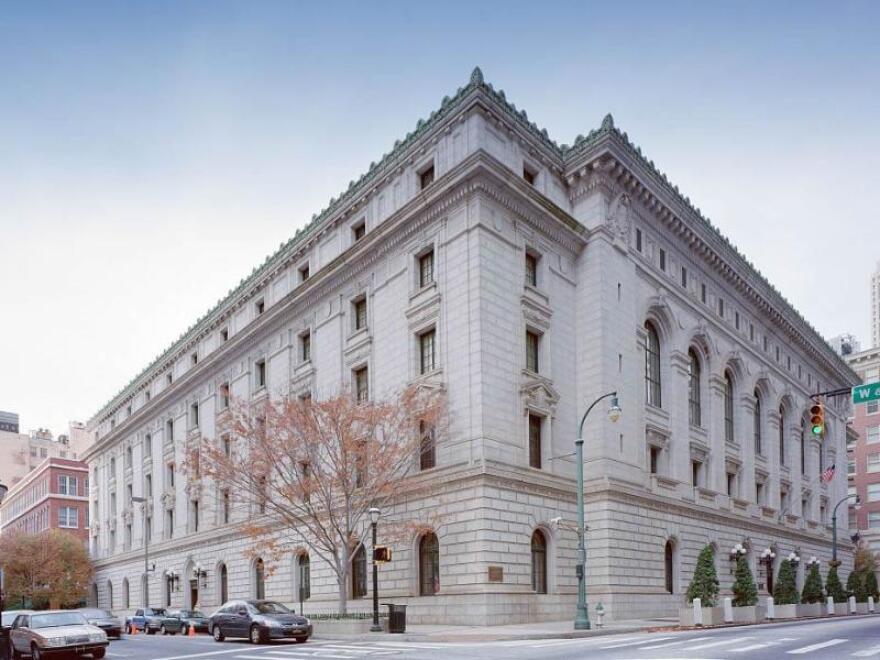TALLAHASSEE — Siding with plaintiffs, a federal appeals court has refused to put on hold a decision that bans the state from denying the right to vote to felons who are unable to pay court-ordered fees and fines. Monday’s ruling by a three-judge panel of the 11th U.S. Circuit Court of Appeals allows the 17 plaintiffs in the case — felons who claim they are unable to pay “legal financial obligations” required by a state law — to cast ballots in the March presidential primary elections. Gov. Ron DeSantis and his administration had asked the Atlanta-based court to put the Feb. 19 panel decision on hold, as the state seeks what is known as an “en banc,” or full court, review. But in a three-page order Monday, the panel refused, saying “we remain unpersuaded” because the state’s lawyers “have not made a strong showing of likelihood of success on the merits” of its appeal of an October ruling by U.S. District Judge Robert Hinkle that imposed a preliminary injunction against the state law. “Moreover, as we discussed at length in our opinion, the balance of equities lies in favor of these 17 appellees,” appeals-court judges Lanier Anderson III, Stanley Marcus and Barbara Rothstein wrote. “In urging us to stay enforcement of the district court’s preliminary injunction, appellants raise the same arguments they have raised throughout this litigation, which we discussed and rejected in our decision of Feb. 19, 2020.” Hinkle ruled that the state cannot deny the right to vote to felons who are “genuinely unable to pay” court-ordered fees and fines. The district judge issued a preliminary injunction that prohibited the state from taking any action to prevent the 17 plaintiffs in the case from registering to vote. But the judge agreed to a state request to put on hold part of the injunction that would allow felons to vote if they can show they are unable to pay fines or fees. That hold expired on Feb. 11, and the appellate court has refused the state’s requests to extend it until the underlying appeal has been decided. The 17 plaintiffs in the case became eligible to vote on Feb. 11, and Monday’s ruling keeps their eligibility intact. “We are glad that the court has essentially reaffirmed its decision that SB 7066 is an unconstitutional law that further penalizes poor people simply because they cannot afford to pay what, in our clients' case, amounts to thousands of dollars in LFOs (legal financial obligations),” Nancy Abudu, a lawyer for the Southern Poverty Law Center, told The News Service of Florida in a text Tuesday morning. Abudu, whose group is part of the litigation, was referring to the state law, SB 7066, passed by the Republican-controlled Legislature last year, that was aimed at carrying out a constitutional amendment, known as Amendment 4. The 2018 amendment restored voting rights to felons who have completed terms of their sentences. The law required felons to pay court-ordered “legal financial obligations,” including fees, fines and restitution, to be eligible to vote. Voting-rights groups challenged the law, arguing that hinging voting rights on felons’ finances amounts to a modern-day “poll tax.” Upholding Hinkle’s ruling, the three-judge panel last month found the Florida law “unconstitutionally punishes a class of felons based only on their wealth.” Arguing Feb. 21 to keep Hinkle’s decision on hold, the state’s lawyers wrote that “a majority of the active judges on this court will likely agree to hear the case en banc” and overturn the ruling. The panel’s ruling created a split with another appellate circuit, making it likely the full 11th U.S. Circuit Court of Appeals will agree to review the case, the state’s lawyers wrote. “And this is not a circuit split on a mundane or inconsequential matter. Instead, it goes to the very composition of the electorate of the state of Florida, an issue of profound importance,” DeSantis’ lawyers wrote. In a Feb. 27 motion seeking the full court review of the panel decision, the state’s lawyers accused the three judges of applying the wrong type of analysis, known as “heightened scrutiny,” to arrive at the ruling upholding Hinkle’s decision. The panel should have relied instead on a “rational-basis review” used by other courts when weighing similar matters, lawyers for the state argued. In urging the full court to reconsider the decision, the state called the case a “paradigmatic candidate for en banc review.” “Indeed, it is difficult to think of an issue more important to the sovereignty of a state than the makeup of its electorate,” lawyers for DeSantis and his administration wrote in the motion filed with the Atlanta-based appeals court.
Federal Court Refuses To Block 17 Felons In Florida From Voting

